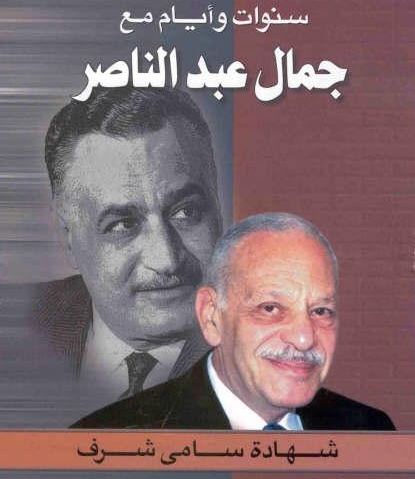 |
 |
| Chasing the paper trail
The anniversary of the 23 July Revolution is as good a time as any to try and scrutinise the archives, writes Gamal Nkrumah The Free Officers-led revolutionaries surround Abidine Palace on 23 July 1952 The pundits have staved it off for now, but on the 55th anniversary of the July Revolution public curiosity over the whereabouts of classified documents is growing. The public has a right to access these documents, say some commentators. Mohamed Hassanein Heikal, the Arab world's foremost political writer, has publicly admitted to possessing a number of historic documents. "The papers in Heikal's possession reflect his close association and special working relationship with [former president] Gamal Abdel-Nasser," historian Yunan Labib Rizk told Al-Ahram Weekly. "Heikal has an extensive collection -- deposited abroad. I suspect, too, that Sami Sharaf has some important papers in his possession -- he was, after all, Nasser's minister for presidential affairs," says Rizk. He points out that Heikal's collection could not have been assembled without vast sums of money and the strenuous effort exerted by Heikal himself. Heikal has painstakingly gathered an immense collection of foreign documents pertaining to Nasser and the 23 July Revolution. A number of collections of important documents have recently been computerised and are now deposited with the relevant government departments. "Soon after Nasser's death, Heikal formed a committee which included Sami Sharaf, Hoda Abdel-Nasser and her husband Hatem Sadek, Hassan Pasha Youssef, and myself among others," explains Rizk, to review existing documents relating to the revolution. "This is the true story of the revolution's documents. We were entrusted to collect all relevant papers from the Nasser period (1952-1970). It was a monumental task but we were proud to be part of such an endeavour. However, we only met three times," adds Rizk, before President Anwar El-Sadat "set up a rival committee with overlapping responsibilities." "This new committee was composed of the then Vice-President Mohamed Hosni Mubarak, Boutros Boutros-Ghali, Ahmed Ezzat Abdel-Karim, Gamal Zakariya Qassim and Seyeda El-Kashef. In other words, our original Heikal-headed committee was made redundant overnight." "I have no documents," Sami Sharaf told Al-Ahram Weekly. "Everything I had was taken away from me. There is nothing in my possession." Sharaf then went on to relate some of the turning points of the Nasser period -- the nationalisation of the Suez Canal; the Yemen War; the so-called War of Attrition of 1970; the Arab Socialist Union; the Six Day War and the 9 June 1967 Resignation Statement, when Nasser tendered his resignation only to be reinstated three days later. Then there were the six aims of the 23 July Revolution: the destruction of imperialism and its stooges among Egyptian traitors; ending feudalism; ending monopolies and the domination of capital; establishing social justice; the building of a powerful national army and establishing a sound democratic system. Should the documents relating to the pursuit of these goals become available, researchers would finally be able to disentangle reality from the many myths that have grown up around the revolution. There are those today who insist that the revolution was no big deal, or that it lies at the root of the ills afflicting contemporary Egyptian society. Only a close examination of the papers and documents pertaining to what was once described as the "Blessed Revolution" will determine the truth behind such assertions. "Yes, we made mistakes, and some of those mistakes are grave," Sharaf admits "However, we worked on a trial and error basis. It was our prerogative to make mistakes." An increasing number of commentators, though, appear nostalgic for a paradigm shift. Virtually all the values and aspirations embodied in the original spirit of the revolution, from social justice to freedom from imperialist oppression, have been overturned. Moreover, there are those who believe the seeds of Egypt's current socio-economic and political predicament were sown during the early years of the revolution, blaming it for the current deplorable educational and health standards, authoritarianism and political bankruptcy. Yet such conjectures are all too often based on little more than conjecture. "The July Revolution had many negative impacts on the country," says Osama El-Ghazali Harb, the editor-in-chief of Al-Siyasa Al-Dawliya (International Politics Journal) and a founding member of the newly-established Democratic Front. "Before the revolution there was an admirable tradition of archival activity and documentation in the country. Unfortunately, the Egyptian authorities deliberately distorted, and at times aborted, the tradition of documentation that had been a positive feature of pre-revolutionary Egypt". Hoda Abdel-Nasser, the late president's daughter, served for many years as a repository of her father's political legacy. For a two-year period she headed the now defunct Al-Ahram Egyptian Revolution Research Unit. She is especially fond of her seven-volume publication, Minutes of the Meetings of the Higher Central Committee of the Arab Socialist Union. Yet the presidential papers could yield much more valuable information on the Nasser era and the immediate post-revolution period. Egypt's once thriving archival tradition includes Dar Al-Kutub, Egypt's National Library, founded in 1869, Dar Al-Wathaiq, Egypt's National Archive, established in 1829 and Dar Al-Mahfoudhat, the Public Record Office. Sadly, it seems that there is little certainty over the whereabouts of many historic documents dating from 1952. One can only hope that such invaluable records do not meet the same fate as other invaluable archival material such as the former royal family's papers. Two years after the revolution, in 1954, they were consigned, unannotated, to a damp basement of Abdin Palace. |
|
| © Copyright Al-Ahram |
إنتهى النقل
يحى الشاعر

Back to Index & proceed
الــــرجوع الى الفهـــرس للمتابعة والمواصلة
You are my today's
Web guest
Thank you for your visit
© 2007 Yahia Al Shaer. All rights reserved.
This web site is maintained by
ICCT, International Computer Consulting & Training, Germany, US